 October 28, 2021 John E. Ross, KD8IDJ, Editor
| ||||||
ARRL Concurs with Two FCC WRC-23 Advisory Committee Draft Positions ARRL has said it agrees with the draft positions of the FCC's World Radiocommunication Conference (WRC) Advisory Committee (WAC) on WRC-23 agenda items 1.13 and 9.1 (Topic A). ARRL is represented on the WAC and participating in its work. The FCC International Bureau issued a call for comments earlier this year. With respect to agenda item 1.12, ARRL recommends that the US support "studies and possible "Our support for the draft recommendation is conditioned on explicitly including in the recommendation the need to provide protection and not impose constraints on incumbent services in adjacent frequency bands," ARRL said. "Our expectation is that such studies will identify the capability and adequate means to protect the weak-signal operations of the Amateur Radio Service on the adjacent 50 - 54 MHz band without imposing any restraint on those operations, if the need to use this spectrum for spaceborne radar sounders is confirmed." In its remarks, ARRL noted Draft Preliminary Views on WRC-23, WAC-23/034 (13.09.2021) appended to the FCC's Request for Comment that use of 50 - 54 MHz by radio amateurs was recently studied and documented in ITU-Radiocommunication Report M.2478-0, "Spectrum needs for the amateur service in the frequency band 50 - 54 MHz in Region 1 and sharing with mobile, fixed, radiolocation, and broadcasting services." ARRL also expressed its support for the WAC's draft recommendation on Agenda Item 9.1, Topic A, Space Weather Sensors. The agenda item calls on the Conference to consider and approve the Report of the Director of the ITU Radiocommunication Bureau reviewing the results of studies relating to space weather sensors "with a view to describing appropriate recognition and protection ... without placing additional constraints on incumbent services." The WAC draft recommendation is that the view of the US be "that changes to the Radio Regulations are outside the scope of Agenda Item 9.1" and that the US express its support for "conducting the studies called for in Resolution 657 (Rev. WRC-19)." "Completion and consideration of these studies are essential to achieving the desired objective of not placing any additional constraints on incumbent services," ARRL said. ARRL represents the interests of radio amateurs through its participation on World Radiocommunications Conference and FCC advisory committees. Read an expanded version. President Names Rosenworcel FCC Chair, Announces Planned Nominations to FCC, NTIA President Joe Biden this week designated FCC acting Chairwoman Jessica Rosenworcel as Chair and announced that he intends to re-nominate her and nominate another to fill the open seats on the Commission. Rosenworcel, a Democrat, is the first woman to head the Commission. She has served on the FCC since 2012.
Prior to joining the FCC, Chairwoman Rosenworcel served as Senior Communications Counsel for the US Senate Committee on Commerce, Science, and Transportation. Before entering public service, she practiced communications law. She is a graduate of New York University School of Law. The President also announced that he plans to appoint Democrat Gigi Sohn to fill the other Democratic slot on the Commission. Sohn is a Distinguished Fellow at the Georgetown Law Institute for Technology Law and Policy and a Benton Senior Fellow and Public Advocate. She served from 2013 until 2016 as counsel to former FCC Chairman Tom Wheeler. Sohn earned her law degree at the University of Pennsylvania Law School. Biden also announced his intention to nominate Alan Davidson as Assistant Secretary for Communications and Information at the National Telecommunications and Information Administration (NTIA) within the US Department of Commerce. Read an expanded version. ARRL Podcasts Schedule
The latest edition of Eclectic Tech (Episode 45) features a discussion about the current status of The On the Air and Eclectic Tech podcasts are sponsored by Icom. Both podcasts are available on iTunes (iOS) and Stitcher (Android) as well as on Blubrry -- On the Air | Eclectic Tech. ARRL Foundation Scholarship Program to Accept Applications Starting on November 1 The ARRL Foundation will start accepting applications for its 2022 scholarship program on November 1. The submission deadline is December 31. More than 100 scholarships ranging from $500 to $25,000 will be awarded in 2022. The 2022 scholarship year totals an eligible amount of over $800,000 to be awarded.
All applicants must be FCC-licensed radio amateurs (active non-US radio amateurs are eligible for scholarships sponsored by ARDC), and many scholarships have specific requirements, such as intended area of study, or residence within a particular ARRL Division, Section, or The ARRL Foundation will be utilizing a new Scholarship Management Platform for the 2022 ARRL Foundation Scholarships. Applicants no longer choose specific scholarships but will be matched with all scholarships for which they qualify. Transcripts and any additional required documents must be submitted with the application, not emailed separately as was done in the past. Applications without accompanying transcripts and applicable required documentation will not be considered. The ARRL Foundation Scholarship Committee will review all applicants, and scholarship recipients will be notified in May 2022 via USPS mail and email. For more information, visit the ARRL Foundation Scholarship Program. US and Region 2 Amateur Radio Direction Finding Championships Results are In The results are in for the 20th US ARDF Championships and 11th IARU Region 2 Amateur Radio Direction Finding (ARDF). Four days of competitions were held October 14 - 17 in North Carolina. The results will help determine the makeup of the US ARDF team at the 20th Competitors ranged in age from 14 to 74. Competitive events were held in the Birkhead Mountains Wilderness Area just south of Asheboro, North Carolina. Events began on October 14 with sprint events, a fast-paced competition in which two sets of five transmitters operating on two different 80-meter frequencies transmit nonconsecutive 12-second bursts every minute. Two elite competitors completed the sprint course in just over 15 minutes, a world-class time.
Two classic events were held on October 15. The longer courses for the younger adult categories took place on 2 meters, and the shorter courses for the older adult and youth categories took place on 80 meters. Foxoring, a combination of radio direction finding and classic orienteering on 80 meters, followed the next day. "Foxoring tests the map-and-compass navigation skills of the participants," ARRL ARDF Co-coordinator Gerald Boyd, WB8WFK, explained. Competitors try to hear the weak signals of very-low-power transmitters until they arrive very close to the marked locations and make a quick sprint to find its exact location."
Competitions concluded on October 17 with a different map and two more classic events, this time with the bands swapped for those on the longer and shorter courses. "Two standout youth competitors turned in impressive times on adult courses in the womens' W19 category," Boyd said. Youths included Adalia Schafrath-Craig (14 years old) of North Carolina who picked up classic and foxoring golds, and Elizabeth (Lisa) Afonkin (15 years old) of Massachusetts who won the sprint gold. For more information on amateur radio direction finding, visit the ARRL ARDF website. Read an expanded version. ARRL Learning Network Webinars
More webinars are coming soon! ARRL members may register for upcoming presentations and view previously recorded Learning Network webinars. ARRL-affiliated radio clubs may also use the recordings as presentations for club meetings, mentoring new and current hams, and discussing amateur radio topics. ARRL members interested in presenting a webinar can complete the online Speakers Form. 3Y0J DXpedition to Bouvet Island Confirms November 2022 Activation The 3Y0J Bouvet Island DXpedition team says that with its first deposit on its contract to have the SS Marama provide transportation to Bouvet, it has confirmed its plans to activate the second most-wanted DXCC entity in November 2022. "It is a huge task and undertaking to go to Bouvet, and we still critically need additional upfront support to close the budget," said the amateur Dave Jorgensen, WD5COV, is an avid DXer and experienced DXpeditioner. He is vice president of the Intrepid-DX Group, which had hoped to mount a DXpedition to Bouvet before its plans broke down. The second new team member, identified as Peter, is described as "an experienced captain and expedition leader." He will oversee the Zodiac landings and serve as a digital mode (FT#) operator.
"Our preparation for Bouvet includes planning, constructing, and testing a system for landing Zodiacs safely, [and] this will be tested in rough sea in Norway before and after Christmas," the 3Y0J team said in its news release.
"We plan for safely landing the Zodiacs in different manners also with some swell, unmanned, and with less risk for operators. And we prepare for the event that Zodiacs are capsizing, and we still can retrieve the equipment. We have done the first prelim sea trials of the Zodiac equipment in Norway and will continue sea trials to further mature the concept." According to the announcement, the team plans to use a gasoline-engine powered winch to lift equipment up a cliff to the operating site. This will also be tested in Norway. "We plan to access the 25-foot cliff with professionals means and, if needed, prepare for climbing and bolting a short route to gain access." Follow the DXpedition team's plans from its website and the 3Y0J Facebook page. Read an expanded version. Amateur Radio in the News ARRL Public Information Officers, Coordinators, and many other member-volunteers help keep amateur radio and ARRL in the news.
Share any amateur radio media hits you spot with us. Announcements
Indian Radio Amateurs Help to Coordinate Disaster Relief in the Wake of Flooding The administration of the Thrissur District in Kerala, India, sought the service of radio amateurs to support communications during disaster relief operations in the wake of incessant rain and resultant flooding "Communication turns out to be a major challenge when natural calamities strike," Sarachandran C. S., VU2SCV, told the Press Trust of India news agency. "During heavy floods, there are chances that the power supply will be down for days, which will affect the communication systems, including the mobile phones." Sarachandran, a former merchant navy officer, was one of 10 operators volunteering to help the Thrissur administration to handle emergency communication. CNN reports that at least 27 people were killed after heavy rain triggered floods and landslides in southern India. According to their report, torrential rain in mid-October caused rivers to swell and flooded roads, leaving vehicles submerged in muddy water. Some houses were "reduced to rubble," CNN said. Ham radio volunteers have been recruited to assist during previous natural disasters in India, including an August 2018 flood that ravaged Kerala state. Sarachandran recounted that during the August 2018 event, as the state flooded and power outages affected communication, the district administration sought the assistance of radio amateurs. Well-Known Amateur Radio Contester and DXer Will Roberts, AA4NC, SK An experienced and successful member of the amateur radio contesting and DX community lost his life on October 21 as the result of a small plane crash. ARRL Life Member William "Will" Roberts, AA4NC, of Apex, North Carolina, was piloting the plane, which went down not long after take-off in a wooded area of Onslow County, North Carolina, near the Holly Ridge/Topsail Island Airport, killing Roberts and another passenger, A licensed radio amateur since 1976, Roberts became interested early on in contesting and DXing and enjoyed being "on the DX end of the pileup," as he said in his QRZ.com profile. Over the years, Roberts operated from many locations, including some in South and Central America and others in more exotic locales. He was a regular at the Dayton Hamvention®. He is on the DXCC Honor Roll, had achieved nine-band DXCC on HF, and VUCC on 6 meters. He also enjoyed RTTY. AA4NC took part regularly in events like the ARRL 160-Meter Contest and ARRL November Sweepstakes. He participated in the first World Radiosport Team Championship (WRTC) event in 1990 in Seattle and served as a judge at WRTC 2018 in Germany. A member of the Potomac Valley Radio Club (PVRC), Roberts was the trustee of W4MR, used occasionally in contests from his home contest station. Roberts was also a guitarist and vocalist who played solo acoustic shows in the coastal Carolinas and belonged to the Flying Musicians Association (FMA). A graduate of North Carolina State University, Roberts was an electrical engineer, specializing in telecommunications. Investigators from the National Transportation Safety Board (NTSB) are looking into the cause of the crash. In Brief...
The K7RA Solar Update Tad Cook, K7RA, Seattle, reports: Sunspot activity was up this week, with the average daily sunspot number increasing by nearly five-fold from 11.3 to 54.9. Average daily solar flux rose from 78.6 to 95.7. The sunspot number peaked on Tuesday at 95, and daily solar flux peaked on Wednesday at 110.9. Geomagnetic indicators were quiet. Daily average of Predicted solar flux looks quite promising at 111 and 112 on October 28 - 29; 110 on October 30 - 31; 108 on November 1 - 3; 90 and 88 on November 4 - 5; 86 on November 6 - 7; 85 on November 8 - 9; 83 on November 10; 82 on November 11 - 15; 85 on November 16 - 20; 94 on November 21; 95 on November 22 - 23; 96 on November 24; 95 on November 25 - 29, and 92, 90, 88, and 86 on November 30 - December 3. Predicted planetary A index is 5 and 8 on October 28 - 29; 10 on October 30 - 31; 5 on November 1 - 5; 12, 10, and 8 on November 6 - 8; 5 on November 9 - 14; 10 and 8 on November 15 - 16; 5 on November 17 - 22; 8 on November 23 - 24; 10 on November 25 - 26; 5 on November 27 - 28; 8 on November 29, and 5 on November 30 - December 2. This weekend is the CQ World Wide SSB DX Contest. The CW weekend is November 27 - 28. ARRL November CW Sweepstakes is next weekend, November 6 - 8. Sunspot numbers for October 21 through 27 were 11, 28, 32, 46, 81, 95, and 91, with a mean of 54.9. The 10.7-centimeter flux was 81.9, 86.9, 86.8, 93.2, 100.6, 109.3, and 110.9, with a mean of 95.7. Estimated planetary A indices were 7, 4, 3, 4, 5, 5, and 3, with a mean of 4.4. Middle latitude A index was 9, 3, 2, 2, 4, 3, and 2, with a mean of 3.6. A comprehensive K7RA Solar Update is posted Fridays on the ARRL website. For more information concerning radio propagation, visit the ARRL Technical Information Service, read "What the Numbers Mean...," and check out the Propagation Page of Carl Luetzelschwab, K9LA. A propagation bulletin archive is available. For customizable propagation charts, visit the VOACAP Online for Ham Radio website. Share your reports and observations. Getting It Right! A news brief in The ARRL Letter for October 14, 2021, regarding operations from Eswatini (formerly Swaziland), should have mentioned that operations by Romeo Vega, 3W3RR (aka Romeo Stepanenko), are invalid for DXCC credit. The ARRL Awards Committee voted in 1996 to disqualify him from participation in the DXCC program. Just Ahead in Radiosport
Upcoming Section, State, and Division Conventions
Search the ARRL Hamfest and Convention Database to find events in your area. ARRL -- Your One-Stop Resource for
Subscribe to...
Free of charge to ARRL members...
| ||||||
.jpg) consideration of a new allocation to the
consideration of a new allocation to the .jpg)
.jpg) The latest episode of the On the Air podcast (Episode 22) features a discussion with Chris Plumblee, W4WF, about contesting and what this activity has to offer new amateurs.
The latest episode of the On the Air podcast (Episode 22) features a discussion with Chris Plumblee, W4WF, about contesting and what this activity has to offer new amateurs. amateur television with Jim Andrews, KH6HTV, as well as a brief description of an unusual "sound dampening screw."
amateur television with Jim Andrews, KH6HTV, as well as a brief description of an unusual "sound dampening screw."
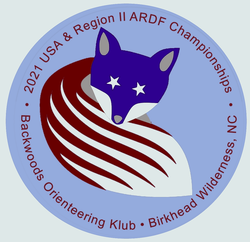 ARDF World Championships, set for summer 2022 in Serbia. The US Championships and the World Championships were rescheduled from 2020 after they had to be canceled due to COVID-19 restrictions. Visitors from outside the US were unable to attend this year's competition due to continued travel restrictions.
ARDF World Championships, set for summer 2022 in Serbia. The US Championships and the World Championships were rescheduled from 2020 after they had to be canceled due to COVID-19 restrictions. Visitors from outside the US were unable to attend this year's competition due to continued travel restrictions..png)
.png)
 Visit the
Visit the  radio DXpeditions team of co-leaders Ken Opskar, LA7GIA; Rune Øye, LA7THA, and Erwann Merrien, LB1QI. The DXpedition announced that two more operators will join the adventure, taking the number to 13.
radio DXpeditions team of co-leaders Ken Opskar, LA7GIA; Rune Øye, LA7THA, and Erwann Merrien, LB1QI. The DXpedition announced that two more operators will join the adventure, taking the number to 13..jpg)
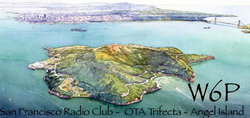 The
The .png) ARRL Audio News
ARRL Audio News.JPG) that disrupted lives across central Kerala, The Economic Times
that disrupted lives across central Kerala, The Economic Times 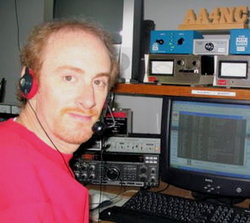 identified as Willie Hobbs, Jr. Two children were hospitalized with injuries. Roberts, 61, was the owner of the Mooney M20J aircraft and held a commercial pilot's license.
identified as Willie Hobbs, Jr. Two children were hospitalized with injuries. Roberts, 61, was the owner of the Mooney M20J aircraft and held a commercial pilot's license.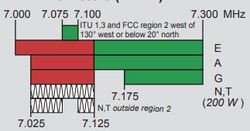
-Screen.PNG)
(1).png)
.jpg)
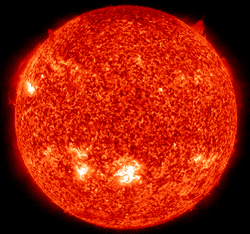 planetary A index went from 8.4 to 4.4, and average daily middle latitude A index declined from 5.4 to 3.6.
planetary A index went from 8.4 to 4.4, and average daily middle latitude A index declined from 5.4 to 3.6.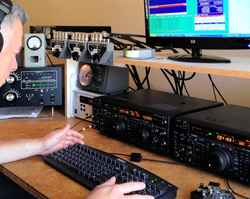 November 3 -- Phone Weekly Test - Fray
November 3 -- Phone Weekly Test - Fray







